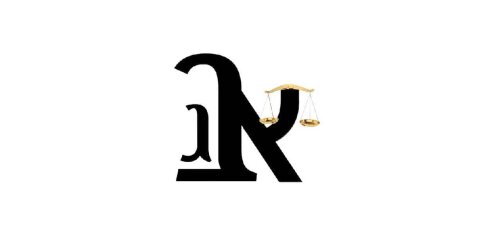Best Hiring & Firing Lawyers in Israel
Share your needs with us, get contacted by law firms.
Free. Takes 2 min.
Or refine your search by selecting a city:
List of the best lawyers in Israel
About Hiring & Firing Law in Israel
Hiring and firing in Israel are governed by a complex framework of laws that aim to balance the rights and obligations of employers and employees. These laws encompass a range of issues, including anti-discrimination, termination benefits, employment contracts, and the protection of employee rights. Israeli labor law is characterized by its protectionist nature, often focusing on safeguarding employees' rights and ensuring fair treatment within the workplace.
Why You May Need a Lawyer
There are several reasons individuals or businesses may require legal assistance in the realm of hiring and firing in Israel. Some common situations include disputes over wrongful termination, compliance with anti-discrimination laws, drafting and reviewing employment contracts, understanding employee rights, layoffs and redundancy procedures, negotiating severance packages, and navigating complex legal requirements in the termination process. Legal advice can help in ensuring compliance with the law and avoiding potential legal disputes.
Local Laws Overview
Key aspects of local laws in Israel related to hiring and firing include:
- Employment Contract: While not legally required, written employment agreements are strongly recommended to clearly define the terms of employment.
- Termination Notice: Both employers and employees are obligated to provide advance notice before termination, with varying durations based on employment tenure.
- Severance Pay: Employees who are dismissed after completing one year of service are typically entitled to severance pay, calculated according to their years of service.
- Anti-discrimination Laws: Employers are prohibited from discriminating based on age, gender, religion, race, or political views.
- Collective Agreements: Many workplaces are governed by collective agreements that influence wages, benefits, and termination procedures.
- Unfair Dismissal: Employees may claim unlawful dismissal if they believe termination was unjustified, necessitating legal scrutiny.
Frequently Asked Questions
What is the standard notice period for termination in Israel?
The standard notice period varies depending on the employee’s length of service, ranging from one day to one month.
Are employers required to provide a reason for termination?
While employers are not legally obligated to provide a reason for termination, failing to do so may leave them open to claims of unfair dismissal.
What constitutes unfair dismissal in Israel?
Unfair dismissal involves termination without just cause or in violation of the contractual terms or labor laws.
How is severance pay calculated?
Severance pay is generally calculated as one month's salary for each year of employment, applicable after one year of continuous service.
Can an employee be terminated during maternity leave?
No, termination during maternity leave is prohibited, and additional restrictions apply post-maternity leave unless special permission is obtained from the Ministry of Labor.
Are there specific protections for older workers?
Yes, Israeli law prohibits age discrimination, offering protection against unfair treatment based on age.
Is it legal to fire someone without a written termination notice?
No, written notice is required, and failure to provide it may result in legal repercussions.
Are there restrictions on firing employees engaged in union activities?
Yes, employees cannot be dismissed for participating in union activities, as this is protected under labor laws.
Are there specific industries with unique labor regulations?
Yes, industries such as security, healthcare, and telecommunications may have additional regulations outlined in collective agreements.
What recourse does an employee have if they believe they were unfairly dismissed?
An employee can file a complaint with the labor court or seek mediation through labor relations services.
Additional Resources
For further assistance and information, consider reaching out to the following organizations:
- Ministry of Labor, Social Affairs, and Social Services: Provides information and assistance related to labor laws and employee rights.
- Histadrut: Israel's national trade union organization, offering support for workers and advice on employment issues.
- Legal Aid Department: Offers legal support and guidance for those who qualify for assistance.
Next Steps
If you require legal assistance with hiring or firing in Israel, it is advisable to consult with a lawyer who specializes in labor law. They can provide personalized guidance, help draft or review employment contracts, and assist in any legal disputes. Start by gathering all relevant documents and information related to your employment situation to facilitate a thorough consultation. Consider seeking legal counsel through professional legal associations, law offices specializing in labor law, or consulting platforms that connect clients with experienced lawyers.
Lawzana helps you find the best lawyers and law firms in Israel through a curated and pre-screened list of qualified legal professionals. Our platform offers rankings and detailed profiles of attorneys and law firms, allowing you to compare based on practice areas, including Hiring & Firing, experience, and client feedback.
Each profile includes a description of the firm's areas of practice, client reviews, team members and partners, year of establishment, spoken languages, office locations, contact information, social media presence, and any published articles or resources. Most firms on our platform speak English and are experienced in both local and international legal matters.
Get a quote from top-rated law firms in Israel — quickly, securely, and without unnecessary hassle.
Disclaimer:
The information provided on this page is for general informational purposes only and does not constitute legal advice. While we strive to ensure the accuracy and relevance of the content, legal information may change over time, and interpretations of the law can vary. You should always consult with a qualified legal professional for advice specific to your situation.
We disclaim all liability for actions taken or not taken based on the content of this page. If you believe any information is incorrect or outdated, please contact us, and we will review and update it where appropriate.
Browse hiring & firing law firms by city in Israel
Refine your search by selecting a city.















